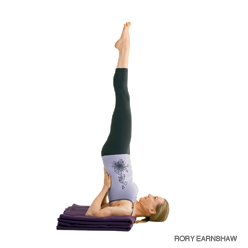Poor posture can affect your physical and emotional well-being. The chronic pain and tension can cause poor circulation which has an effect on emotions. Improving your posture can be done in a variety of ways such as back strengthening exercises, posture aids, and physical therapy. You can also improve posture in your sleep. Adding certain bedding and being or even small changes in the way you sleep can have a great effect on your posture. Below are a few steps that can help improve posture while sleeping and that can have an overall effect on physical and emotional pain:
- Choose a firm mattress support. This doesn’t mean a firm feel, it means a mattress that will offer the support your body needs while maintaining a comfortable balance. It is important to take your time in finding the right type of mattress. Point out your pains whether lower or higher back pains and then speak with a mattress professional. They can recommend a mattress that helps.
- Begin improving your posture during the day. Stand against a wall several times a day. Your shoulder blades should touch the wall and the back of your head should touch while ensuring your chin is parallel to the ground. Practice this several times a day to get the proper feeling of good posture and the help strengthen your back.
- Walk around for a few minutes before going to bed. Most of us spend time sitting and it is likely your pelvis is tucked forward which is a reason for poor posture. Walking around can help loosen your muscles and allow for a more relaxed sleep.
- Try not to sleep on your stomach. Sleeping on your stomach elevates your neck and back higher than your spine which can lead to chronic pain. It may be difficult to switch positions but it is a must if you want to improve posture and decrease stress on the spine.
- Choose a side sleeping posture. This is recommended as the best posture followed by sleeping on your back. While sleeping on your side, try to adjust your body as if you are doing the wall test. Ensure you have a pillow that will keep your head and neck aligned with your spine. Adding a pillow between your knees will support the top hip, keeping it aligned with the bottom hip. Body pillows make great pillows for this.
- Choose a back sleeping posture. If sleeping on your side is not comfortable enough, try sleeping on your back. Place a pillow or 2 beneath your knees, so that your back flattens slightly into the mattress.
- Move around when you wake up. Walk around, swing your shoulders in their sockets, and do a very light stretch. This can ease pain and stiffness, improving posture during the day.
Remember that bedding plays an important role in sleeping positions. Finding the right type of bedding for your sleep positions can help keep spines and necks aligned and can decrease stress that causes poor posture. We pride ourselves on being the best bedding experts for your sleep needs. Give us a call and we can help you with your sleeping problems. Sleep well live well.
Blog author: Jesse, channel manager









